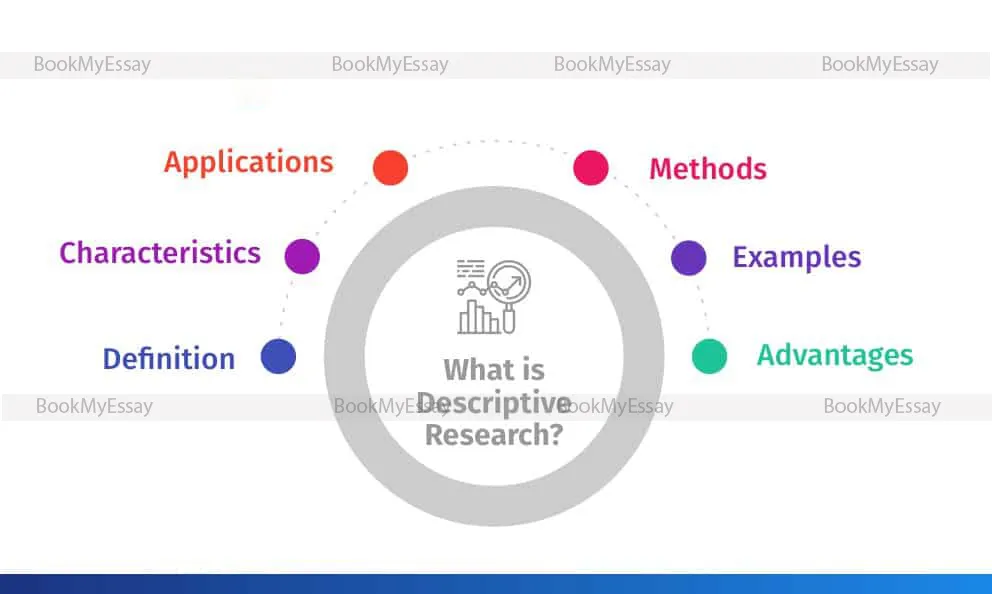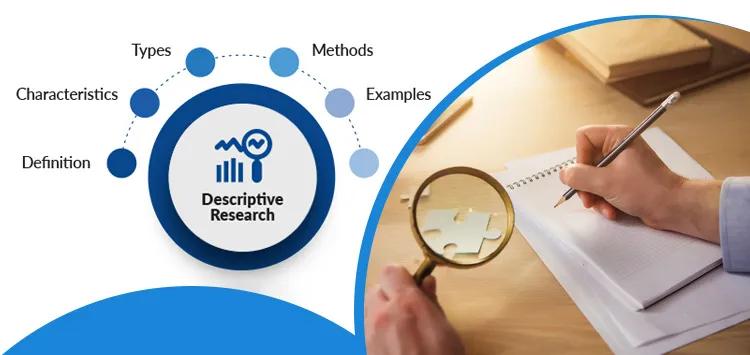Descriptive Research
Descriptive research is a method employed in the field of psychology to systematically observe, record, and analyze phenomena without manipulating variables. When delving into the realm of psychology assignments, understanding the distinction between basic and applied research becomes crucial. Basic research seeks to expand knowledge and understanding, focusing on theoretical exploration without immediate practical applications. In contrast, applied research aims to address specific issues or problems, translating theoretical knowledge into practical solutions.
When students encounter assignments related to "Basic vs Applied Research in Psychology," they grapple with deciphering the inherent differences. Descriptive research plays a pivotal role in both types, aiding in the collection and analysis of data essential for comprehensive investigations. Whether investigating the fundamental principles of human behavior or solving practical problems in real-world scenarios, descriptive research serves as a foundational tool. Assignments exploring the nuances of basic versus applied research in psychology require a nuanced understanding of how descriptive research contributes to the empirical foundation of psychological inquiry.
What Is The Primary Goal Of Descriptive Research?
The primary goal of descriptive research is to systematically observe, record, and describe the characteristics or behaviors of a phenomenon without manipulating variables. Descriptive research provides a detailed account of the subject under investigation, offering a snapshot of its current state. The key aim is to present an accurate and comprehensive portrayal, answering the "what," "when," "where," and "how" questions related to the studied phenomenon. By utilizing methods such as surveys, case studies, content analysis, or naturalistic observation, researchers seek to uncover patterns, relationships, and trends within the data.
The term "Descriptive Research Definition" underscores the importance of defining and delineating the subject of study. This type of research is often employed in exploratory phases, hypothesis generation, or when a deeper understanding of a topic is required. Researchers use descriptive research to paint a clear picture of a subject, laying the groundwork for subsequent analytical or explanatory research. Overall, the primary goal is to provide a detailed and objective account, fostering a foundational understanding for further investigation.

How Does Descriptive Research Differ From Experimental Research?
Descriptive research and experimental research represent distinct methodologies in the realm of academic inquiry, particularly within the context of social sciences. Descriptive research focuses on observing and documenting the characteristics of a phenomenon without manipulating variables. It aims to provide a detailed account of existing conditions or relationships, offering a snapshot of the subject under investigation. This approach is valuable for generating hypotheses and understanding the nature of a problem.
On the other hand, experimental research involves manipulating variables to establish cause-and-effect relationships. Researchers implement controlled experiments, introducing independent variables to observe their impact on dependent variables. Experimental research is rigorous and aims to draw conclusive insights by isolating specific factors and assessing their influence.
In the realm of academic support, students often seek "assignment help free from plagiarism" to ensure originality in their work. Descriptive research may involve compiling information and presenting it coherently, while experimental research demands a deeper understanding of research design and statistical analysis. Both methodologies contribute to advancing knowledge, yet their approaches diverge in terms of exploration and hypothesis testing.
What Types Of Data Are Commonly Collected In Descriptive Research?
How to Take Descriptive Writing To The Higher Level?
Descriptive research aims to depict the characteristics of a phenomenon without manipulating variables. Commonly collected data in descriptive research include demographic information, observational data, surveys, case studies, and archival records. Demographic data offer insights into the sample's characteristics, while observational data involve direct observation of behavior. Surveys gather information through questionnaires, interviews, or polls, providing a broader perspective. Case studies delve deeply into individual cases, offering a nuanced understanding of specific situations. Archival records involve analyzing historical documents or records.
To elevate descriptive writing, consider incorporating vivid details, sensory language, and precise observations. Engage readers by appealing to their senses, creating a mental image, and emphasizing significant details. Utilize strong adjectives and precise language to enhance clarity. Structure the writing coherently, transitioning smoothly between ideas. Incorporating anecdotes or real-life examples can add depth and relatability. Experiment with different sentence structures to maintain reader interest. By infusing descriptive writing with rich language and engaging techniques, one can take it to a higher level, making the narrative more compelling and immersive for the audience.
Can Descriptive Research Be Used To Establish Cause-And-Effect Relationships?
Descriptive research primarily focuses on describing the characteristics of a phenomenon without manipulating variables. Unlike experimental research, it does not aim to establish cause-and-effect relationships. However, it can indirectly contribute to understanding potential associations between variables. When seeking help with assignment online, students may find that descriptive research aids in providing a comprehensive overview of a subject, offering valuable insights for further investigation. While it doesn't directly prove causation, descriptive studies can identify patterns, trends, and correlations, laying the groundwork for more targeted experimental research.
When availing assistance with assignment online, students should recognize the limitations of descriptive research in establishing causation. To determine causal relationships, experimental designs, such as randomized controlled trials, are preferred. Nevertheless, descriptive research plays a crucial role in initial exploration, hypothesis generation, and forming the basis for future rigorous studies. Seeking help online can guide students in understanding the nuanced application of descriptive research within the broader research landscape.
How Does BookMyEssay Approach The Methodology Of Descriptive Research?
BookMyEssay adopts a comprehensive and meticulous approach to the methodology of descriptive research, ensuring a systematic and detailed exploration of the subject matter. The process begins with a clear definition of the research objectives, identifying the key variables and parameters to be studied. A thorough literature review follows, enabling a nuanced understanding of existing knowledge and gaps in the chosen field.
In the data collection phase, BookMyEssay employs various techniques such as surveys, observations, and content analysis to gather relevant information. The emphasis is on obtaining a rich dataset that allows for a detailed description of the phenomenon under investigation. Rigorous data analysis methods, including statistical tools and software, are then applied to derive meaningful patterns and insights.
BookMyEssay recognizes the importance of clear and concise presentation of findings in descriptive research. The final step involves the preparation of detailed reports, utilizing visual aids and narrative structures to enhance understanding. This meticulous methodology ensures that clients receive high-quality, informative, and well-organized descriptive research outputs tailored to their specific needs.







 3 Bellbridge Dr, Hoppers Crossing, Melbourne VIC 3029
3 Bellbridge Dr, Hoppers Crossing, Melbourne VIC 3029




